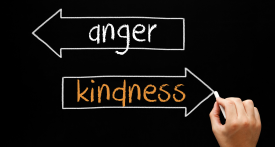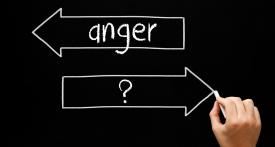Show all entries of this category
172
Vote
For our intention to become our own “hallowed tree”, it needs to be nurtured and that begins with words. The first stages of what Bahram Elahi calls in vivo practice, i.e. fighting against the imperious self and concretely putting into practice human virtues in everyday life and in contact with others, have to do with our words. The extraordinary thing about words is, precisely, that they are ordinary. Every minute of our lives in the most ordinary circumstances, we can do an act of humanity by choosing to speak or, on the contrary, not to speak.
Read more
283
Vote
In the latest French edition of The Path of Perfection published earlier this year, Professor Bahram Elahi presents a model of the human soul, or what he also calls the true self – a preview of which had already been given on this site. In this model, the soul, just like the body, is presented through a series of anatomy-like diagrams as an actual organism: a psychospiritual organism with which it is necessary to become familiar in order to perfect one’s humanity.
Read more
226
Vote
According to Ostad Elahi’s model of the self, we are bi-dimensional beings. We carry within ourselves a celestial part that, combined with our animal terrestrial part, forms our humanity. It is within this intimate combination—perhaps best compared to fertilization (when two gametes, or sexual cells, one male, the other female, unite to form a new zygote)—that our psychological and spiritual personality is forged. It is a crucible for our character traits and for the powers within us. In this equation, also lies the enigma of free will, in other words the question of evil
Read more
241
Vote
From a perspective of ethical perfection, to see ourselves in the mirrors of others is to take everything that emanates from them (actions, words, behaviour, etc.) as means to better know ourselves. Such was the general conclusion reached by Sandrine Duplessis in the first part of her inquiry. In this second part, the author gives us a few pointers as to how to concretely put this into practice.
Read more
227
Vote
“Know thyself”. This is certainly a beautiful maxim, but how can we expect to achieve such an end when part of ourselves is resisting so vigorously and preventing us from seeing our own faults? It is a fact: we tend to systematically overvalue ourselves and we are much more sensitive to the ethical wrongdoings of others than to our own. This two-part article by Sandrine Duplessis suggests that the solution may well lie in the problem: it is by changing our behaviour toward others that we may come to achieve a more lucid knowledge of ourselves.
Read more
207
Vote
A number of annoying things have happened to me recently. There was that young man who shoved me as he was getting on the subway; that colleague who asked me to finish some of his work and then left the office for the day; and then those other colleagues who kept interrupting me while I was in the middle of an important task to ask me the same question over and over again—a question to which I did not have the answer… Those incidents occurred over a two-day period. They put me in a state of irritation and bad mood I had never experienced before.
Read more
157
Vote
This is the second – in vivo – stage of practical work introduced in December (see An antidote to anger (1): analysis): going deeper into what triggers anger, reframing our relations to others as central to our practice and making kindness the active ingredient in the struggle against anger. Literature review: I started reading up about anger in books on child psychology. I was initially looking for passages on parental anger, but what I mostly found in the end were studies on anger in children, and they helped me understand a lot.
Read more
146
Vote
The kind of anger we are dealing with here is not the “fashionable fault” that goes under that name when sudden changes of mood are perceived as the mark of an impetuous character or an explosive temper. It is a tendency that, in the long run, may eat your life away and ruin the atmosphere of your home. When it is not expressed outwardly, anger is often combined with a state of depression and dark thoughts. You may stifle it and endure it for a while, but with accumulated fatigue, you will inevitably vent it on others sometimes triggering uncontrollable effects. So how can we break the vicious circle?
Read more
178
Vote
An earlier post on the question of anger has allowed us, on the basis of a short scenario, to reflect on the situations that can trigger anger, on what its root causes are, and on whether it is legitimate to give vent to our anger in any judicious or rational way, when we risk letting it run free. The purpose of this second post is to discuss the effects of anger, both on the subject and on those around him or her.
Read more
178
Vote
From mere annoyance to exasperation or fury, anger can express itself in many ways, and in all kinds of situations. Identifying anger within ourselves is generally an easy task, even though it sometimes takes subtle forms that can cloud our judgment. On the other hand, whatever form it takes, controlling it is always a different story. It is rather safe to state that this issue concerns, in one form or another, every one of us. We will thus dedicate several posts to examining it. This first one will allow us, on the basis of a scenario and a few questions, to start reflecting and to share our thoughts, experiences, suggestions, ideas and interrogations.
Read more
Go top
Newer Entries »
|

 News
News Podcast
Podcast













Recent Comments